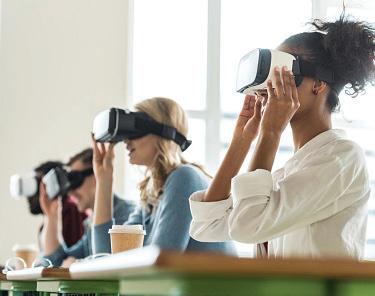
2 minute read
VR could improve ethical awareness in the accounting profession
Ethics are a perennial concern for accountants and accounting educators. Relatively recently, the Wirecard scandal, where EY as the auditor failed for more than three years to detect fraud at the failed payments processor (Storbeck and Chazan, 2020), has highlighted the importance of continuous ethics and professional training in the profession.
Like others before and after it, the Wirecard scandal will be used as a teaching moment for accountants through the production of text or video-based case studies. However, the disruptions to higher and professional education caused by the Covid-19 crisis have drawn particular attention to online, computer-mediated and interactive modes of instruction—including virtual reality (VR), which turns out to have special value in the teaching of ethics-focused case studies.
Advertisement
Text and video-based cases are often used to teach accounting students and accountants how to solve ethical issues in managerial accounting. Reading cases lets learners critically reflect on case facts and social norms, which on a first look seems beneficial. However, responses to dilemmas in text-based cases often represent what a person thinks they should do, not what they would really do. The careful and dispassionate reflection involved in studying text-based cases is not always a feature of real-world decisionmaking, where professionals are under time and performance pressures and influenced by organizational cultures.
As the present research has discovered, presenting ethical dilemmas in a virtual environment can trigger emotional responses like those they generate in real life. Experiencing the process of making flawed decisions in VR can help students identify their own weaknesses and learn strategies to improve their ethical conduct.
VR could thus be a powerful tool for accounting educators and their students in promoting and developing ethical awareness and good decisionmaking. In arriving at this insight, we also found that with the right approach and assistance, creating VR case studies will be possible for many educators within the limits of their existing skills and budgets. One does not have to be a software developer to use VR as a teaching aid to excite and engage students in-person or online. WHY USE VR IN EDUCATION?
Kavanagh et al. (2017) conducted a review of VR in education and discussed the technologies available. They asked how and why educators use VR, and examined the problems they face.
Why? Increase students’ motivation to learn.
How? Gamify learning and let students experience situations virtually.
Problems? Cost, availability, and quality of user experience.




